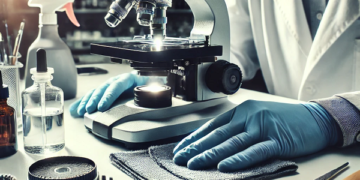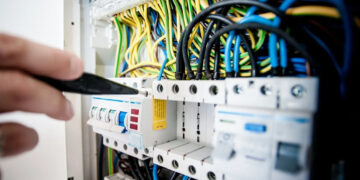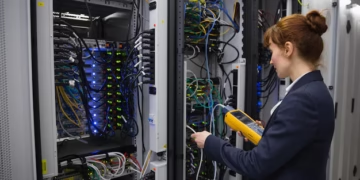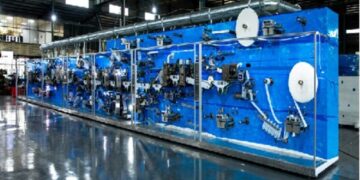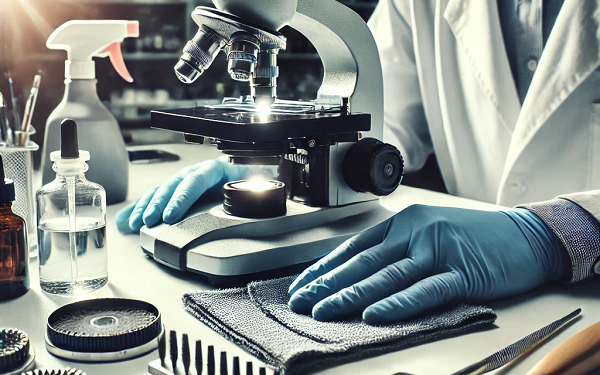Are you getting blurry or unwanted images through your microscope or a wrong measurement? You’re not alone. Numerous scientists and laboratory assistants face problems with ineffective microscopes, but many are unaware that daily care and proper microscope cleaning and maintenance are important for providing perfect vision.
It’s not just about clean lenses but about the best condition or performance possible for every part of your microscope. From simple wipe-down to using the services of a professional calibrator, every step is tremendously important in ensuring the credibility of your research.
This blog post will discuss microscope care and maintenance, the importance of servicing a microscope, and how to select a calibration service provider in New England. Let us shift our attention to maintaining your microscope in its best state!
Why is Microscope Maintenance Crucial?
Microscopes are key in research, healthcare, learning, and manufacturing. These tools allow us to examine the tiny parts of tissues, organs, and other samples closely and in detail.
Maintain Optical Clarity
Microscopes require well-aligned and clean optical components, such as lenses and mirrors, to provide clear images. Dust, fingerprints, and other contaminants can hinder the clarity and resolving power of the lenses, making precise observations difficult and sometimes impossible.
Ensuring Accurate Results
To get results with high accuracy, it is necessary to perform constant care for the microscope. Proper calibration and cleaning prevent
- Distorted images
- Inaccurate measurements
- Misinterpretation of data
Prolonging Equipment Lifespan
Maintenance is key to protecting the feel and look of the instrument and increasing the lifespan of your microscope. Routine maintenance:
- Prevents premature wear and tear
- Identifies potential issues early
- Reduces the need for costly repairs
Essential Microscope Cleaning Techniques
Daily Cleaning Practices
- Dust lenses with a soft brush or air blower
- Wipe eyepieces and objectives with lens paper
- Clean the stage with a lint-free cloth
Weekly Maintenance Routines
Clean all microscope parts well at least once every seven days. This means washing the moving bits, tightening any loose screws, and adding grease to the bottom if needed. Regular maintenance and good care also help the microscope work better and last longer.
Professional Calibration Services in New England
Having a microscope in perfect working order is vital for accurate and trustworthy scientific measurements. Skilled technicians in New England use special tools to check and adjust how well microscopes work.
Enhanced Accuracy
Cleaning eliminates sources of distortion, such as contaminants in the optical path and mechanical misalignment, enabling the microscope to produce sharp and accurate images. Accuracy is paramount in some significant disciplines, including diagnosing, testing, and quality control.
Time and Cost Savings
Maintenance reduces the number of breakdowns and the funds required to fix them. Outsourcing also benefits your employees and staff by allowing them to spend less valuable time cleaning, which is often outside their area of expertise.
Expertise and Specialized Tools
Professionals understand how to clean microscopes competently, as they have the right tools and knowledge. They appreciate that different models have different needs, which keeps them very careful when handling the parts.
Adherence to Set Industry Regulations
In industries like health, drug manufacturing, cleaning, and equipment calibration are usually part of compliance. Hiring professional services assists you in achieving these standards and running your laboratory according to standard procedures.
Types of Microscopes Services
Professional calibration services cater to a wide range of microscopes, including:
- Optical microscopes
- Electron microscopes
- Confocal microscopes
- Fluorescence microscopes
DIY Cleaning vs Professional Services
While many of the external surface tasks including dusting can easily be done by yourself, it is recommended that professionals do complicated ones.
- Specialized Equipment: Professionals employ specific tools and solutions tailored to precision cleaning, which are out of reach of DIYers.
- Risk of Damage: Various parts, for instance, lenses and mirrors, are particularly sensitive and may get damaged if cleaned with the wrong methods,
- Calibration Needs: Cleaning often involves disassembling and reassembling, creating some form of misalignment. Professionals have the expertise to recalibrate microscopes after cleaning.
Choosing the Right Microscope Service Provider
Expertise and Certifications
When selecting a microscope service provider, prioritize expertise and certifications. Look for companies with:
- ISO 9001 certification
- Manufacturer-specific training
- Years of experience in the field
Range of Services Offered
Choose a provider offering comprehensive services to meet all your microscope needs:
- Cleaning and maintenance
- Calibration and alignment
- Repairs and upgrades
- Training for in-house technicians
This ensures a one-stop solution for all microscope-related requirements.
Turnaround Time and Efficiency
- Fast service: 2-3 business days
- On-site calibration available
- Emergency repairs within 24 hours
Maximizing Microscope Performance
Optimal Storage Conditions
Proper storage is crucial for maintaining microscope performance. Store microscopes in:
- Dust-free environment
- Temperature-controlled room at a range of 20-25 °C.
- Low humidity area (30-50% RH)
- Away from direct sunlight
Proper Handling Techniques
Proper handling also helps to increase the working time of a microscope and obtain accurate results. Hold the microscope with both hands and the fingers and hands should not come in contact with the lenses. Clean the objectives and eyepieces with the proper lens-cleaning solution after each use.
Conclusion
Microscope Cleaning and Maintenance is important to provide the best image quality and extend the useful lifespan of this equipment. The techniques mentioned in the post and using the advice of a trustworthy calibration services company in New England will help you bring your microscope to the level of performance and reliability that is possible.
Remember that investing in periodic maintenance and calibration services is about more than saving your microscope. It is a matter of defending the integrity of your research and the legitimacy of your findings.
Choose a provider who understands your unique needs and delivers comprehensive support so your microscopes perform at their highest potential. This will help ensure you are as prepared as possible for consistent, quality scientific results!
